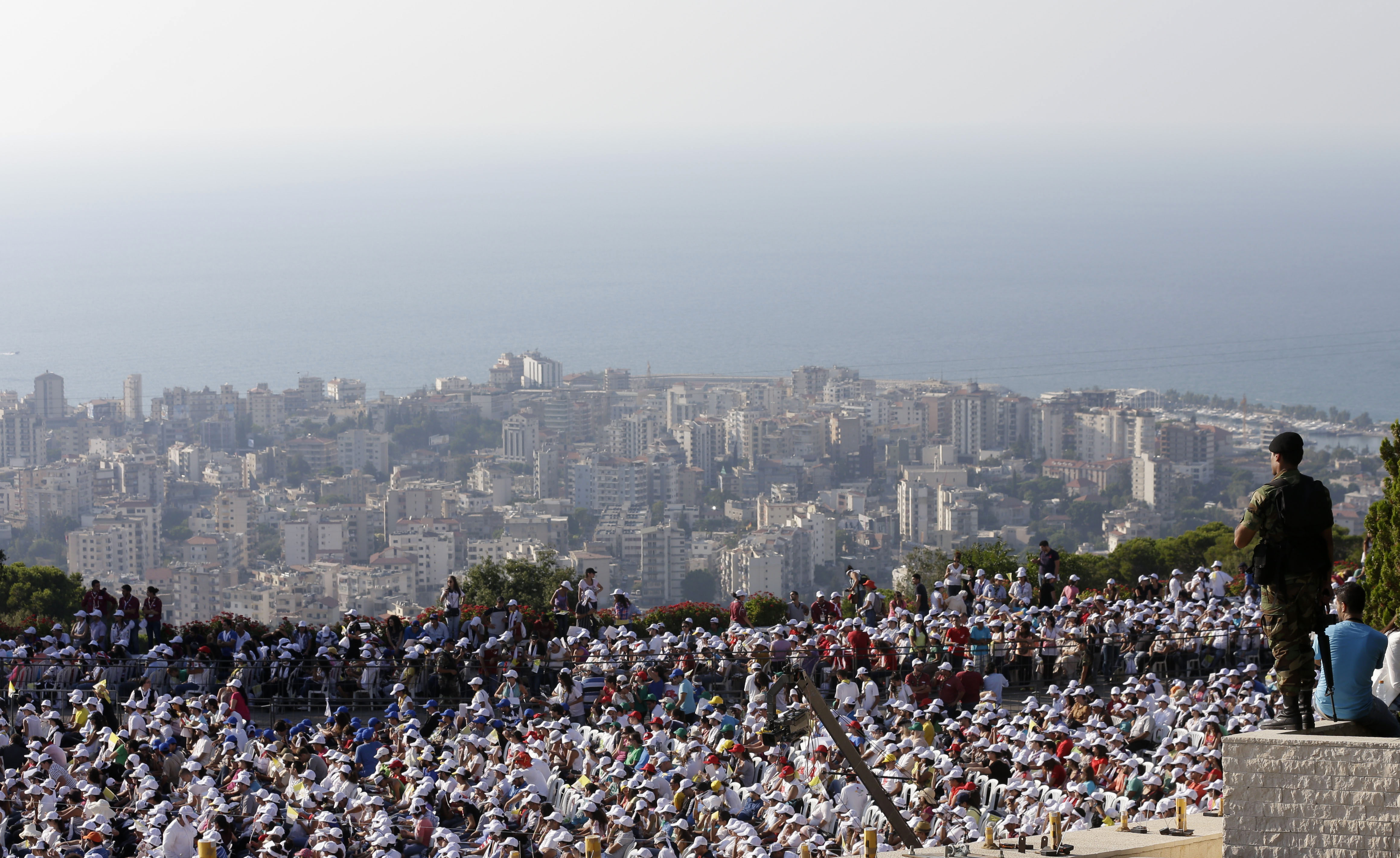After four years of dramatic, and in some cases, violent change, the Arab region is going through the most severe period of disorder in its modern history. Confronting deepening instability, leaders--both in the region and internationally--are too often "fighting fires," unable to take a long-term view of the trends and drivers that underlie day-to-day crises. How can policy-makers harness broader strategic thinking to find effective policies to tackle regional insecurity, economic disparity, and shifting power balances?
To begin working toward such a long-term perspective, the Middle East Institute (MEI) and the European Union Institute for Security Studies (EUISS) were pleased to host Denis Chaibi (EU Mission to the U.S.), Florence Gaub (EUISS), Ross Harrison (MEI), and Alan Pino (U.S. National Intelligence Council) for a discussion about the plausible, probable, and preferable futures for the Middle East in 2025.
The discussion drew on two recent publications: the EUISS report, Arab Futures: Three Scenarios for 2025, and Ross Harrison’s Defying Gravity: Working Toward a Regional Strategy for a Stable Middle East.
Paul Salem, MEI vice president for policy and research and author of the essay, The Middle East in 2015 and Beyond: Trends and Drivers, moderated the discussion.
Biographies:
Denis Chaibi is the deputy head of the political section at the EU Delegation in Washington. He previously served as the administrator for the EU's relations with India in the European Commission, and then on the personal staff of the Commissioner for Budget and Human Resources, Kristalina Georgieva. In 2004, Mr. Chaibi was appointed as an assistant European correspondent in the Commission secretariat, focusing on the EU's Common Foreign and Security Policy. He worked for several years as head of sector in the trade defense instruments directorate. In parallel, Mr. Chaibi taught courses on international relations at the Brussels Free University, Boston University, and Yale University, where he was the EU fellow in 2003-2004.
Florence Gaub is a senior analyst at the European Union Institute for Security Studies in Paris, where she focuses on conflict and security in the Arab World, with particular emphasis on Iraq, Lebanon and Libya. She also works on Arab military forces more generally, conflict structures, and the geostrategic dimensions of the Arab region. Previously employed at NATO Defense College and the German parliament, she wrote her PhD on the Lebanese army at Humboldt University Berlin and holds degrees from Sciences Po Paris, Sorbonne, and Munich universities.
Ross Harrison is a scholar at The Middle East Institute and on the faculty of the Walsh School of Foreign Service at Georgetown University. He also teaches Middle East Politics at the University of Pittsburgh, and is the author of “Strategic Thinking in 3D: A Guide for National Security, Foreign Policy and Business Professionals.” Harrison’s articles on Middle East politics have been widely published in The National Interest, The Huffington Post, al-Monitor, Parameters (U.S. Army War College Quarterly) and The Middle East Institute.
Alan Pino is the National Intelligence Officer for the Near East at the National Intelligence Council, where he has served since 2005. From 2000 to 2005 he served as chief of the Arab-Israeli Group in the CIA’s Office of Near Eastern and South Asian Analysis. He was the chief of the CIA Counterterrorism Center’s Analysis Group from 1998-2000. Previously, he served in a variety of analytical and managerial assignments on the Middle East at CIA.
Paul Salem (moderator) is vice president for Policy and Research at The Middle East Institute. He focuses on issues of political change, democratic transition, and conflict, with a regional emphasis on the countries of the Levant and Egypt. Salem writes regularly in the Arab and Western press and has been published in numerous journals and newspapers. Salem is the author of a number of books and reports on the Middle East, including most recently Broken Orders: The Causes and Consequences of the Arab Uprisings (Beirut: Dar Annahar, in Arabic, 2013) and "Iraq's Tangled Foreign Relations” (Beirut: Carnegie Middle East Center Report, December 2013). Prior to joining MEI, Salem was the founding director of the Carnegie Middle East Center in Beirut, Lebanon between 2006 and 2013. From 1999 to 2006, he was director of the Fares Foundation and in 1989 founded and directed the Lebanese Center for Policy Studies, Lebanon's leading public policy think tank.












